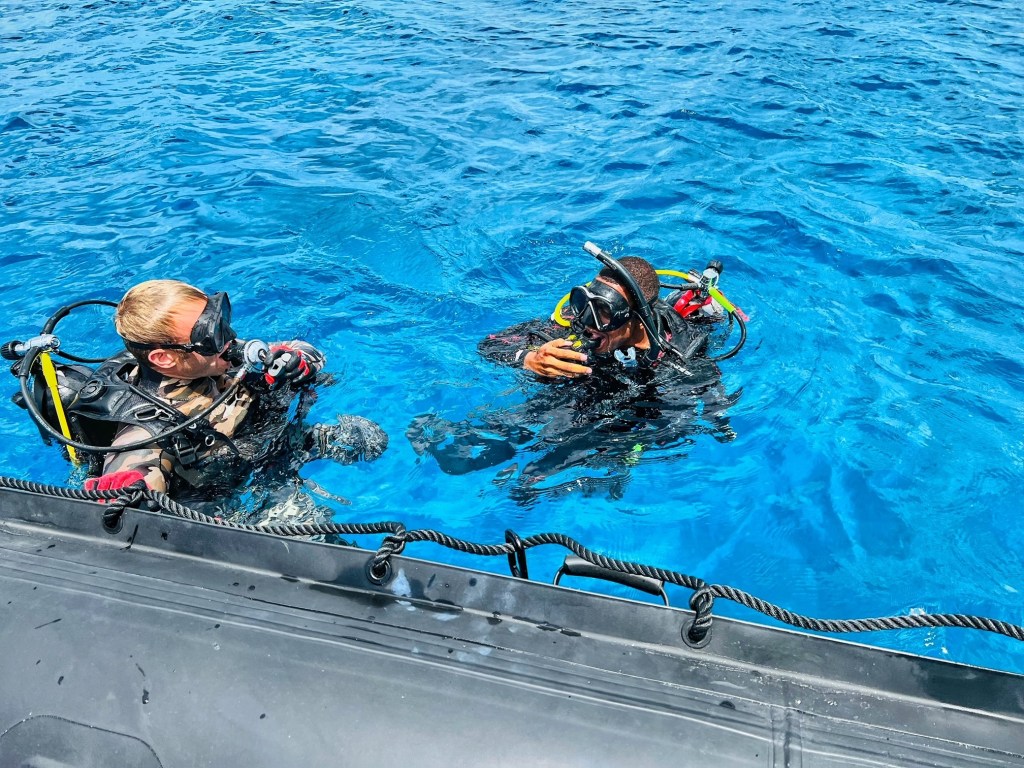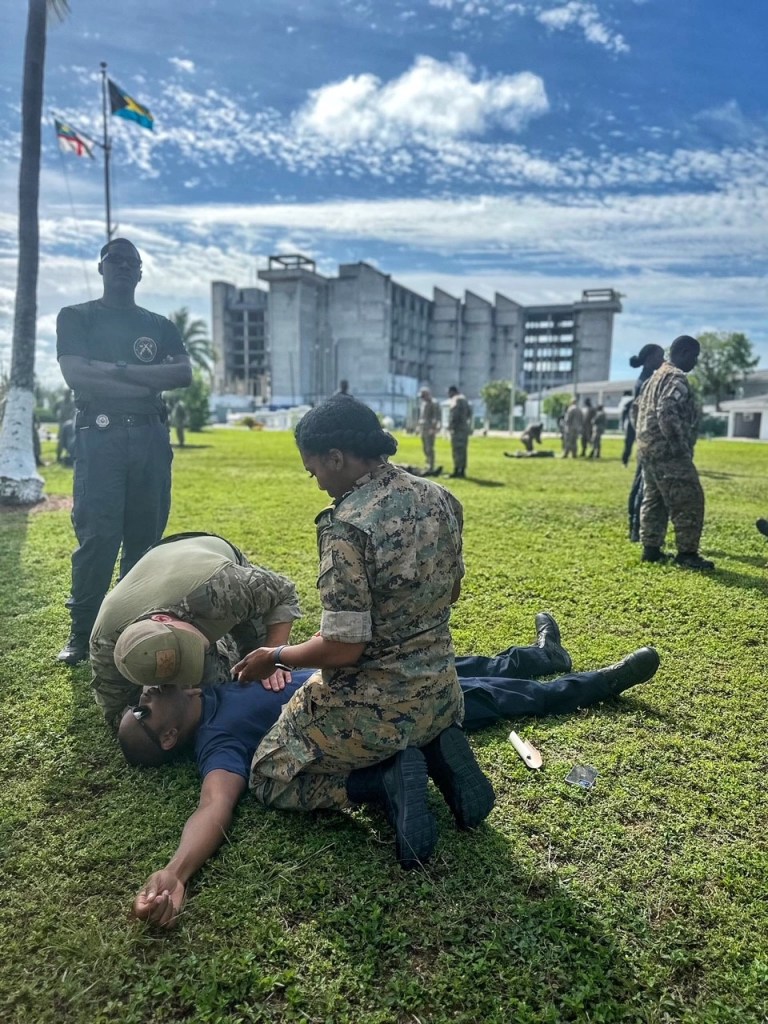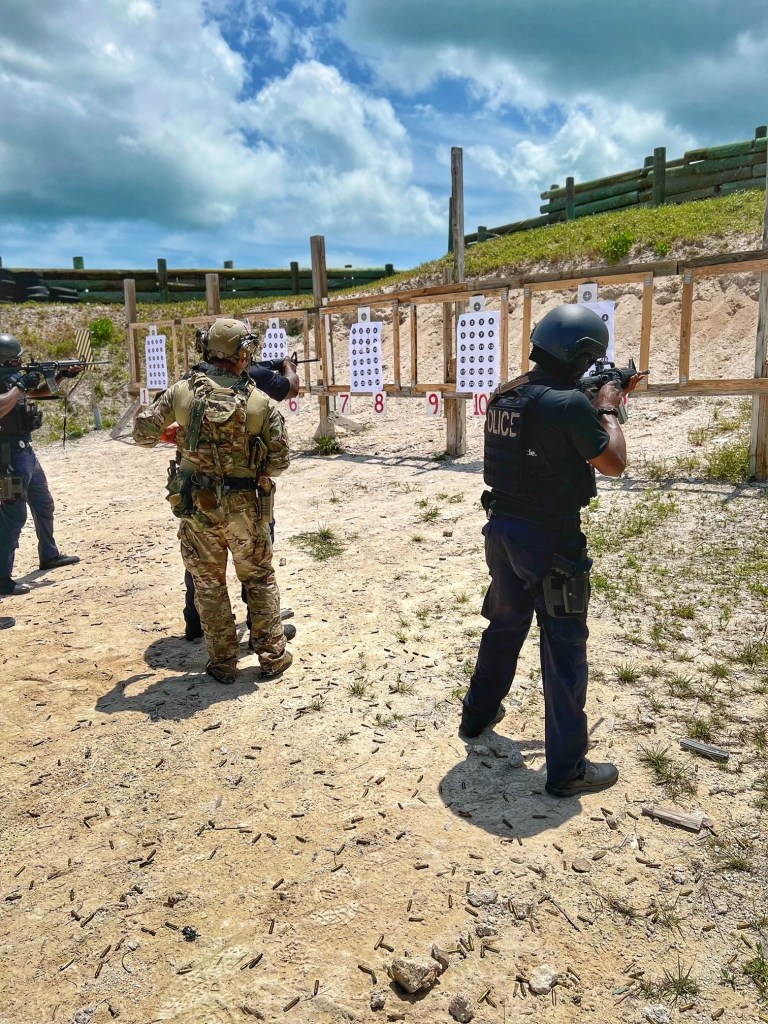
U.S. 7th Special Forces Group (Airborne), the Royal Bahamas Defence Force (RBDF), and the Royal Bahamas Police Force (RBPF) recently conducted a five-week, joint combined exchange training (JCET) to enhance cooperation between the two countries’ armed forces.
With transnational criminal organizations relying on existing pathways for their illicit smuggling operations, helping The Bahamas strengthen its security forces is one of the U.S. Embassy’s top priorities.
“It takes robust, bilateral law enforcement cooperation to help ensure the safety of our borders. Joint training exercises help us become cohesive and enhance our capabilities and performance as a team,” said Captain Gregg Gellman, the U.S. Embassy’s Senior Defense Attaché.
Beyond the personal connections made between members of these armed services, the annual engagement promotes sustainable and productive military relationships.
During training, a Special Forces cadre led dozens of armed Bahamian marines and police officers in close quarter combat drills. The exercise involved clearing rooms and stairwells from a hypothetical threat.
U.S. Special Forces and their RBDF counterparts also engaged in combat marksmanship, medical training, including CPR, and communications training. Other exercises included mission planning, leadership skills development, troop leading procedures and techniques to improve critical thinking in emergency and crisis situations. A dive component centered around search and recovery. The training culminated with a simulated raid on an abandoned hotel.
“This training exercise was an excellent opportunity for us to continue our lasting partnership with The Bahamas, a significant partner located in the southern band to the United States, said the 7th SFG (A) JCET team leader, whose name is being withheld to protect his identity. “The RBDF have proven time and time again to be an important partner in the region.”
“The value of this training is incredible, we have the tools and procedures to enhance our capabilities,” said the RBDF’s Lieutenant Commander Edward Fritz, the Commanding Officer of Commando Squadron.
“It is a great example of the strong and enduring security partnership between The Bahamas and the United States.”
Source: Tosheena Robinson/Public Engagement
More photo highlights below:








